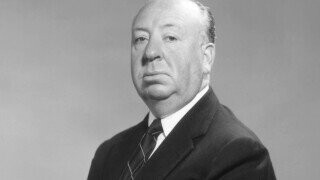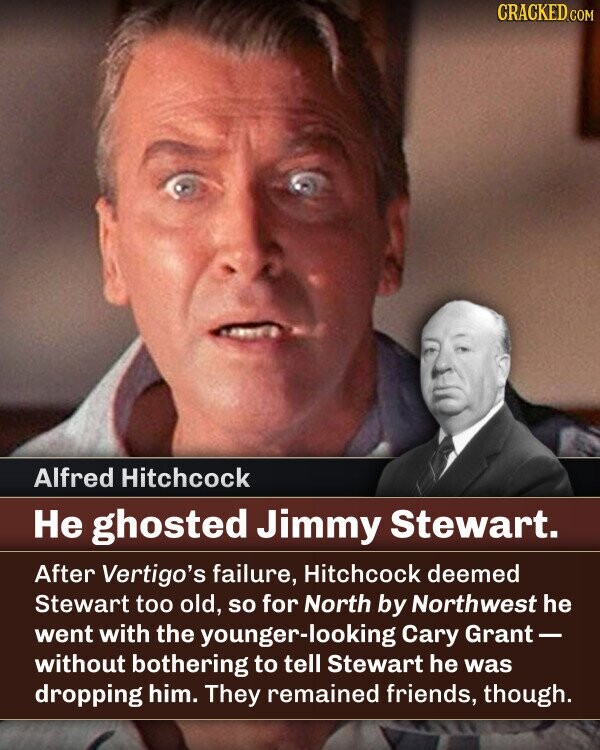20 Facts About Alfred Hitchcock: The Man, The Artist, The Weirdo

We all know Alfred Hitchcock as the visionary mind behind Vertigo, Psycho, and M. Night Shyamalan’s frustrated dreams. And we actually mean visionary, not “visionary” with super-ironic scare quotes and a subsequent jerk-off motion like when the word is used next to Zack Snyder or Elon Musk. Hitchcock was an absolute genius of cinema (hell, even of failed videogames), and he proved it beyond any doubt pretty much consistently for almost half a century. Yet besides being the sort of Master of Suspense whose movies are still inspiring today’s filmmakers(’s lack of creativity), Hitchcock was also a complex individual. For better or worse, the genius also came with the weirdness, and even some good ol’ toxic masculinity.
In this context, today’s Pictof – uh? What’s that? You’re saying toxic masculinity is super lame and only bad faith dumb-dumbs still equivocate it with masculinity? Oh yeah, of course, glad we’re on the same page. Anyway, in today’s Pictofacts we discuss some aspects of the life, talent, and sliminess of this legendary, Walt Disney-triggering psycho. We’re not really focusing on the movies per se, but on the man, the artist, the friggin’ weirdo. Some facts will probably be known to you, but others will come as a surprise. For example, did you know Hitchcock mentored a young M. Night Shyamalan and told him “you’re gonna absolutely reinvent the thriller – for like five minutes, and then you’re gonna spend decades fizzling out and it’s gonna be painful because I’m the real deal?” True story. We truly learn something new every day, don’t we?
Funding 'Psycho'

Source: Mental Floss
Alfred Hitchcock

Source: Mental Floss
Alma Reville

Source: History
Title Cards

Source: Wikipedia
François Truffaut

Source: Wikipedia
Alfred Hitchcock

Source: Mental Floss
Alfred Hitchcock

More: 12 Classic Movie Moments Made Possible by Abuse and Murder
Tippi Hedren

More: 12 Classic Movie Moments Made Possible by Abuse and Murder
Jimmy Stewart

Source: Mental Floss
'Psycho'

F. W. Murnau

Source: Mental Floss
MacGuffin

Source: Mental Floss
Alfred Hitchcock

Source: Wikipedia
Alfred Hitchcock

Source: History
Alfred Hitchcock

Source: The Telegraph
Lost Movies

Source: History
'Smokey and the Bandit'

Source: Mental Floss
Censorship

Source: History
Alfred Hitchcock

Source: Wikipedia
Alfred Hitchcock

Source: History